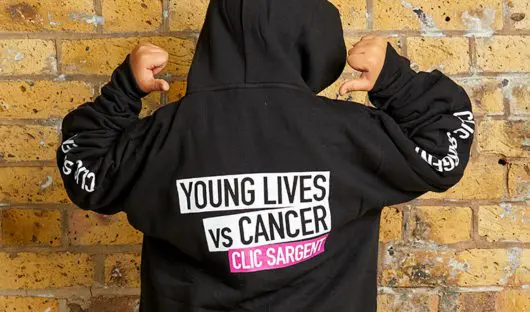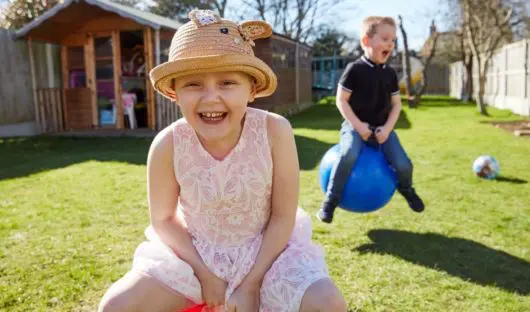My child’s educational rights after diagnosis
If your child is diagnosed with cancer, they are entitled to certain educational rights under the law. It’s the responsibility of their school and their local authority (the local government that looks after the area where you live) to make sure your child’s rights are met.
My child has a right:
If your child is diagnosed with cancer at any point in their life, they automatically meet the definition of disabled, which is a protected characteristic under the Equality Act of 2010 (in England, Wales and Scotland) and Special Education Needs & Disability (NI) Order 2005 (SENDO) (in Northern Ireland).
This means that your child has rights not to be discriminated against due to their diagnosis and that their school should provide reasonable adjustments to accommodate them. This is regardless of the stage of their cancer.
Examples of reasonable adjustments might mean:
- extra time for coursework and extensions to deadlines if they have fatigue
- a locker or somewhere they can leave stuff rather than carry it around
- flexibility in attendance and punctuality when they go for hospital appointments and treatment
- communication with staff during any periods they’re away
Read more:
Your child’s diagnosis might mean that how or where they are educated has to change because due to their diagnosis, they are not able to learn and make use of educational facilities in the same way as other children their age. If this is the case, under the law, they have what’s known as special education needs (SEN). In Scotland this is called additional support needs (ASN).
This means that your child’s school or local authority (LA) must provide additional support to make sure their education can continue. This includes when your child may be too unwell to attend school, or if they are receiving treatment in hospital.
Examples of additional support might include:
- an individual healthcare plan (IHCP) being drawn up and shared with all the professionals involved in your child’s education
- a special learning programme for your child
- extra help from a teacher or a learning support assistant
- working with your child in a small group
- making sure that your child has understood things by encouraging them to ask questions and to try something they find difficult
Read more:
You and your child have a right to be provided with information, advice and support about their educational needs from your local authority (LA) or from other governmental bodies if they have special educational needs (SEN) or additional support needs (ASN). The LA or school should also make sure they are involving you and your child in decisions that are made about your child and their education.
Read more:
- Read the official guidance for England, Scotland, Wales and Northern Ireland
- If you live in England, you can find your local Information, Advice and Support (IAS) service here
- If you live in Scotland, you can find more information from Enquire, the Scottish advice service for additional support for learning
- If you live in Wales, you can find more information from SNAP Cymru
- If you live in Northern Ireland, you can find more information from the Special Educational Needs Advice Centre (SENAC)
If your child has special educational needs (SEN) or additional support needs (ASN), and you feel that their school doesn’t have enough resources to support them with their education, you can request an assessment of your child’s education and health needs.
It’s the first step to getting an Education, Health and Care (EHC) plan in England, a statement of special education needs in Wales and Northern Ireland and a co-ordinated support plan (CSP) in Scotland. These plans provide additional funding for your child to support them in their education. The assessment is normally carried out by your LA and can be requested at any time by you or your child’s school.
Read more:
In some cases, you may encounter problems with your child’s education, or disagree with some of the decisions made by their school or your local authority. This can sometimes be resolved informally or through discussions, but in some situations, you may want to take further action. There are steps you can take to challenge decisions from your school and the local government in your area.
Read more:
You may find the following acronym decoder helpful:
- SEN: Special Educational Needs
- ASN: Additional Support Needs
- EHC assessment or plan: Educational Health and Care assessment or plan
- SEND: Special Education Needs and Disability
- LA: Local Authority
- IAS: Information, Advice and Support
- IHCP: Individual Healthcare Plan
Do you need more information and advice about education? Young Lives vs Cancer has partnered with Contact, the charity for families with disabled children, who can offer specialist advice on a range of issues including education and learning support.
Your Young Lives vs Cancer Social Worker will be able to give you more information about how to access their services, or you can find out more about how to get in touch with Contact here.
![]()
You might also like...
Exams while your child is having treatment
Find out about special arrangements that may be available for your child if they're taking exams during treatment.
Find out more
Helping your child go back to school after treatment
What you and the school should know before your child returns after cancer treatment.
Find out more
Day to day support
Our social workers help with the everyday challenges cancer brings.
Find out more
More information and support
Contact
Contact supports families whatever their child’s disability or medical condition, with the best possible guidance and information – from getting a diagnosis, to securing a suitable place at school.
Visit the websiteGet a Young Lives vs Cancer grant
It’s not right that young people and parents have to worry about money when they need to focus on treatment and all that comes with it. So Young Lives vs Cancer gives various grants, right from the moment of diagnosis, to help young people and families cope financially.
Find out more about getting a grantJoin our Facebook group for parents
Share your stories and experiences with other parents. Get advice or share tips to help others, and become part of a supportive community.
Join the groupAre you a cancer dad?
Many dads spend less time in the hospital and don't get the same network of support. Feeling like you have to 'hold the fort' can be isolating and difficult, so it's extra important you have someone to talk to about your challenges.
Join our Mind the Chaps Facebook group for dads